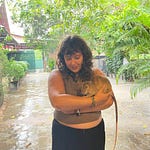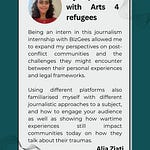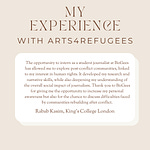The Unhealed Wounds of Partition: How the 1947 Divide Continues to Shape Lives Today
The lasting impact of Partition, symbolizing migration, lost memories, and the hope for resilience amidst the trauma.
The Partition of India in 1947 stands as one of the most traumatic events in modern history, a defining moment not only for the Indian subcontinent but for the entire world. It marked the violent end of British colonial rule and the creation of two independent states, India and Pakistan, later followed by the creation of Bangladesh in 1971. This dramatic redrawing of borders displaced millions and created deep-rooted communal divisions that still reverberate today, leaving scars that continue to shape the lives of both the survivors and their descendants. More than seven decades have passed since Partition, yet the trauma remains palpable among the affected communities. For those who lived through it, the violence and mass displacement marked the beginning of a life permanently altered. For their descendants, the legacy of that period continues to be a painful part of their identity. While time has marched forward, the wounds of Partition have yet to fully heal, and the stories of those who lived through it serve as poignant reminders of the devastating human cost of political upheaval. This article delves into the ongoing impact of Partition through the personal account of Mr. Mulkh Raj Pasricha, a refugee who fled from his hometown of Lyallpur (now Faisalabad in Pakistan) to rebuild his life in Delhi. His story sheds light on how the trauma of Partition transcends generations, shaping the identity and experiences of not only those who directly witnessed the event but also their children and grandchildren.
The Historical Context of Partition
Partition was the result of political negotiations and communal tensions that had been simmering for decades. The actual process of dividing the subcontinent was chaotic and rushed. The announcement of Partition in August 1947 triggered one of the largest mass migrations in human history. Hindus and Sikhs fled from areas that were now part of Pakistan, while Muslims moved in the opposite direction, seeking refuge in Pakistan. Estimates suggest that between 10 to 15 million people were displaced, with as many as one million losing their lives in the ensuing violence. Communal riots broke out across the subcontinent, and the social fabric of many regions was torn apart as families and communities that had coexisted for generations suddenly found themselves on opposite sides of a religious and national divide.
The Human Cost of Partition
The human cost of Partition was staggering. People were forced to leave behind their homes, businesses, and livelihoods, often with nothing more than the clothes on their backs. Entire families were uprooted, and many never reunited. The violence that accompanied the mass migrations was brutal—trainloads of refugees were ambushed, and villages were razed to the ground. Women were particularly vulnerable during this period, with tens of thousands being abducted, raped, and murdered. Thousands of villages were abandoned, crops were left to rot, and ancestral homes were destroyed as people sought to escape the violence. One of the most heart-wrenching aspects of Partition was the psychological toll it took on those who lived through it. For many survivors, the trauma of displacement and the loss of their homeland created a deep sense of longing and nostalgia for the life they had left behind. This sense of loss has been passed down through generations, with children and grandchildren inheriting the stories of Partition and the emotional burden that comes with it.
A Survivor’s Perspective: Mr. Mulkh Raj Pasricha’s Story
Mr. Mulkh Raj Pasricha, now in his 90s, was a teenager when Partition occurred. His story is a testament to the resilience of those who survived this tumultuous period, as well as the enduring emotional impact of being uprooted from one’s homeland.
Born and raised in Lyallpur, a town in what is now Pakistan, Mr. Pasricha lived a peaceful life with his family until the events of 1947 shattered their world. As communal violence erupted across the region, his town became a target for attacks by a Muslim mob intent on massacring the local Hindu population. Mr. Pasricha, his siblings, and his mother narrowly escaped with the help of the military, fleeing to India while leaving behind his father, who was away at the time. In a stroke of good fortune, the family was reunited on the Indian side of Punjab. However, the trauma of those harrowing days still haunts Mr. Pasricha. He vividly recalls the rivers of blood and the bodies that littered the streets, images that remain etched in his memory. He speaks with sadness of the friends he left behind, wondering if they think of him as often as he thinks of them. The violence and displacement he witnessed during Partition left an indelible mark on his psyche, and the emotional scars of those days have never fully healed. Despite the tragedy, Mr. Pasricha found the strength to rebuild his life in Delhi, starting over from scratch like so many other refugees. When asked about the greatest lesson he took from Partition, he reflects on the resilience it instilled in him. “I learned how to leave behind everything and start again,” he says. “The material possessions didn’t matter as much as the fact that I survived. That, in itself, was a miracle.” Like many others who fled during Partition, Mr. Pasricha’s journey was one of survival, adaptation, and resilience. He, like millions of others, was forced to create a new sense of home in an unfamiliar land. Yet, despite decades of separation, the emotional ties to his hometown of Lyallpur remain unbroken—a testament to the deep-rooted connection people have to their places of origin, even in the face of unimaginable hardship.
With similar stories of Muslims having to leave behind their lives, heritage and property and more. The experience is one of people experiencing trauma and upheaval on a scale never seen in human history before. To this day these scars impact people’s lives with the traumas being passed down the generations.
The Lasting Legacy of Partition
Partition may have occurred more than 75 years ago, but its legacy continues to shape the lives of millions across the subcontinent and beyond. The event did not simply end with the creation of two nations; it set in motion a chain of events that continues to influence the politics, culture, and identities of communities in both India and Pakistan. One of the most profound effects of Partition is the ongoing sense of loss and displacement felt by survivors and their descendants. For many, Partition represents the loss of a homeland, a community, and a way of life that can never be recovered. This sense of loss has been passed down through generations, with children and grandchildren growing up hearing stories of the homes their families were forced to leave behind. The trauma of Partition has also led to fractured identities for many individuals and communities. In both India and Pakistan, those who were displaced during Partition often found themselves viewed as outsiders in their new homes. The label of “refugee” became a source of both pride and stigma, as displaced families struggled to rebuild their lives while grappling with the emotional and psychological impact of their experiences. For the descendants of Partition survivors, the event remains a powerful part of their family history. Many young people in India and Pakistan today have grown up hearing stories of Partition from their grandparents and parents, and these stories continue to shape their understanding of identity, belonging, and the impact of communal violence.
Conclusion: Healing the Wounds of Partition
Though more than seven decades have passed, the wounds of Partition remain open for many survivors and their descendants. The trauma of displacement, the sense of loss, and the fractured identities created by this event continue to shape the lives of millions across South Asia and beyond. For survivors like Mr. Pasricha, Partition is not a distant historical event but a lived experience—one that continues to influence how they see themselves and the world around them. As we reflect on this chapter of history, it is essential to remember not only the tragedy of Partition but also the resilience of those who endured it. Their stories serve as a reminder of the human cost of political division and the lasting impact of communal violence. By acknowledging the pain of Partition and the lessons it teaches, we can begin to heal the divisions that still persist today and work towards a future where such a tragedy is never repeated.
In this episode Manya discusses the legacy of Pakistan and India partition She is a student journalist with us on a placement organised with Department of War Studies, King’s College, London. This article was edited using Lex.page.
Thank you for reading an A4R 🎨 Post. Don’t forget to visit our gift shop here. Every purchase scales our impact and pays our bills.














